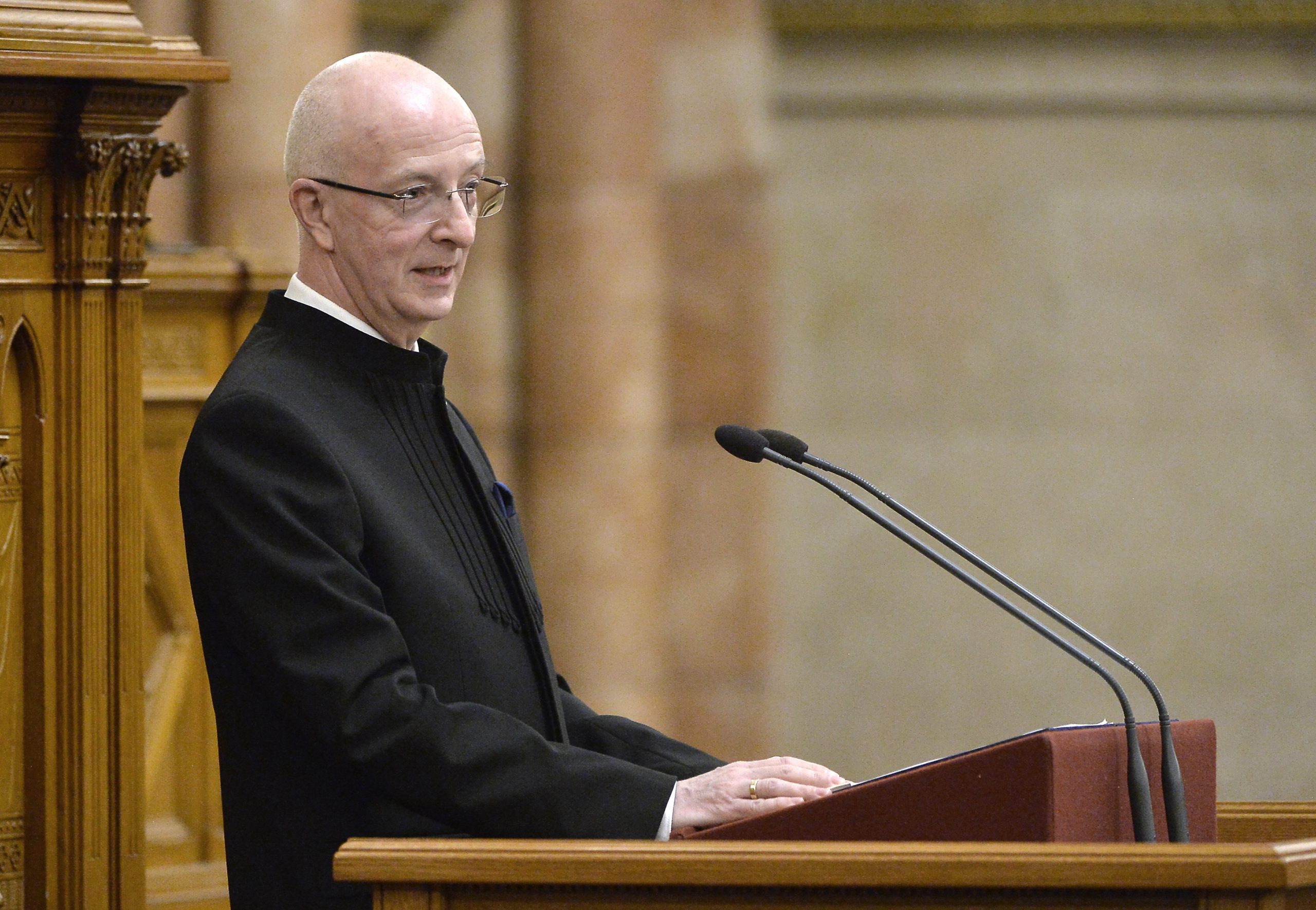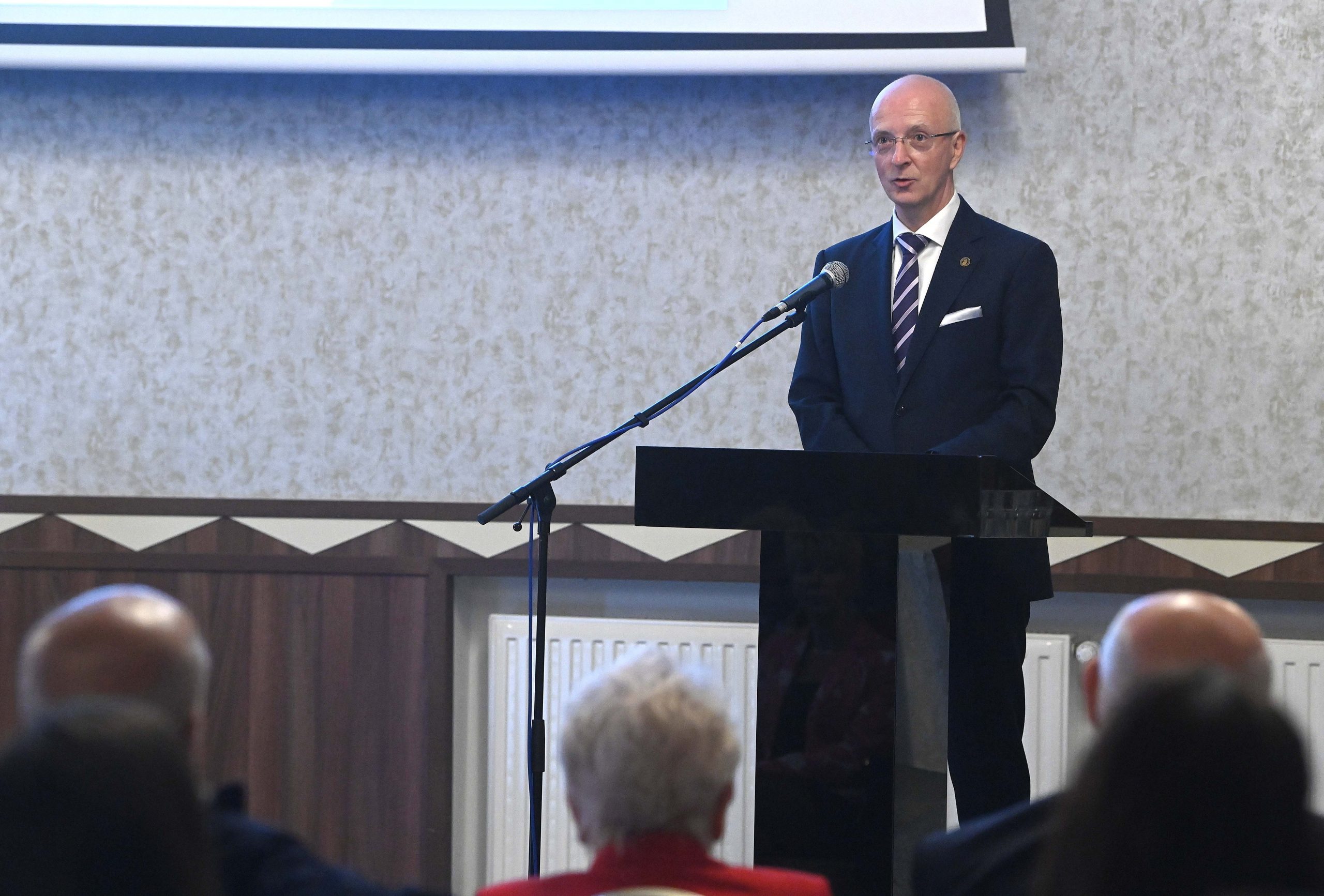
The National Judicial Council (OBT) did not support the motion of Zsolt András Varga, President of Hungary’s supreme court, the Kúria, proposing that the OBT should issue a statement “in defense of the constitution and the constitutional order of Hungary,” Magyar Narancs reports. The aim of the proposal was to condemn – at least indirectly – the opposition’s plan of amending the constitution, in case of their election victory, even without a constitutional majority.
According to the recently published minutes of the January 5th meeting, the 15-member panel of judges voted against the proposal of the president of the Kúria by 14:1, meaning only Zsolt Varga supported it.
Fact
The 14 members (and substitutes) of the 15-member OBT are elected by Hungarian judges, while the 15th member, the incumbent president of the Kúria, is delegated by law to the Judicial Council.
In December, Tamás Sulyok, the President of Hungary’s Constitutional Court, wrote an open letter adressed to President János Áder, House Speaker László Kövér, and Prime Minister Viktor Orbán.
The letter reflected on the opposition’s plan of amending the constitution – even without a constitutional majority- in case of their victory at the parliamentary elections.
Related article
Top Court Head Publishes Open Letter 'in Defence of Rule of Law'
According to Sulyok, there are growing political "perceptions" that Hungary's basic law could be "annulled with the stroke of a pen" and the court dissolved in the event of a change of government after next spring's general election."Continue reading
Some opposition politicians claim the move is necessary, because governing Fidesz has used its two-thirds (constitutional) majority in parliament since 2010 to cement its power; to this end, they even created a new constitution as well. The opposition’s proposal has proven to be extremely controversial among Hungarian legal experts, but some of them said the idea is technically feasible.
Fact
In 2010, Fidesz won a landslide victory in the parliamentary elections, securing a two-thirds majority in parliament independently. The new Fidesz-led government began preparing a new constitution that year, which came into effect in January 2012. The document, officially called the Fundamental Law of Hungary, quickly became a subject of controversy. According to its critics, it was adopted without sufficient input from the opposition and society at large, it reflects the ideology of the ruling Fidesz party alone, and it curtails and politicizes previously independent institutions.
In the letter, Sulyok wrote that “The views voiced by certain political parties and supported by the intellectual spheres that sympathize with them can be considered direct and serious attacks on the rule of law and democracy, and as such are completely unacceptable in a democracy governed by the rule of law.”
The President of the Kúria, the Public Prosecutor’s Office, and the Commissioner for Fundamental Rights, later joined the supporters of the letter.
Related article
Supreme Court, Prosecutor's Office Promise to Protect Hungary's Constitutional Order
The protection of Hungary's constitutional identity is the duty of all organs of the state, Zsolt András Varga, the president of Hungary’s Supreme Court said in reaction to the plans of the opposition parties to annul the constitution.Continue reading
Zsolt Varga also wanted to convince his colleagues in OBT to make a similar statement, and they were also urged to do so by István Lajtár, deputy prosecutor general, and Róbert Répássy, scandal-hit Pál Völner’s successor as state secretary of the justice ministry, who were also present at the meeting. Lajtár argued that in this situation, “…silence can also give the impression of a certain position,” while Répássy said that “the prosecution has long since been affected by a standpoint questioning its legitimacy and we are not far from it reaching the courts.”
There were judges who dismissed this by saying that they should refrain from any position “that could put a foothold in the political scene to interpretations that could call into question the impartiality and independence of judges,” while others reminded the President of the Kúria that Prime Minister Orbán himself had called the opposition’s plan a “political bluff.”
As Magyar Narancs points out the sharp difference of opinion between the elected members of the OBT and Zsolt András Varga is not surprising, as the OBT had not supported Varga’s election as the president of the Kúria in autumn 2020. The OBT noted back then that “two recent amendments to the relevant laws” had paved the way for Varga’s nomination, in violation of the constitutional principle that top judiciary officials should be independent and impartial. After hearing Varga, the OBT rejected his nomination with 13 votes against and one in favor. They also stressed that Varga had been rejected due to his lack of experience as a judge, and because he had “no practical experience in legal procedures and judiciary administration,” unseen in candidates in the thirty years since the fall of communism.
In the featured photo: Zsolt András Varga, the president of Hungary’s Supreme Court, the Kúria. Photo by Lajos Soós/MTI


